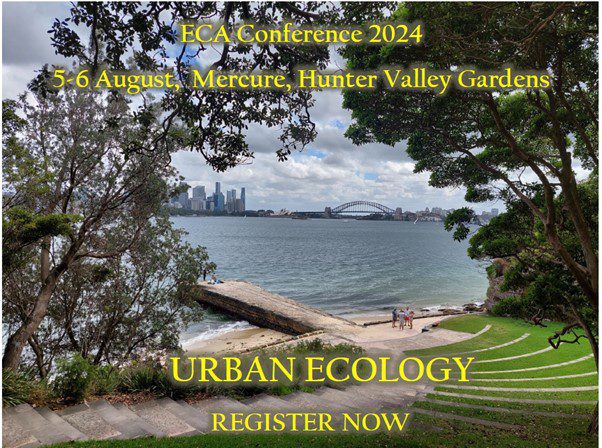
Urban Ecology: Assessment, management and impact mitigation in urban ecosystems: What works and what can we do better?
Many members work on projects associated with urban development that regularly incorporate mitigation measures, including residential, commercial and industrial areas and the infrastructure associated with such development (eg. overhead powerlines, stormwater, roads, and railway). Both primary and secondary impacts need to be considered for short and long-term effects.
Urban habitats post-establishment may also pose additional challenges, such as managing peri-urban habitats and bushland reserves largely isolated and subject to edge effects; or creating habitat for native and exotic species that create unforeseen issues.
Mitigation is a key and mandated part of the process for development assessment both in the planning and post-establishment phase. Many novel ideas have been put forward, implemented, sometimes monitored with limited dissemination of success, failure and improvements. Alternatively, some highly effective measures may not be widely known and hence not deservingly adopted across the industry.
This conference will include presentations on urban bird and microbat habitat, nest-boxes and monitoring techniques, improving habitat for Forest Owls, Green and Golden Bell Frog conservation, managing cats and cane toads, habitat restoration and regeneration, green roofs, vegetation assessment apps, threatened plant translocation and use of cultural burns, as well biodiversity stewardship.
| 2- Day | 1- Day | |
| Member | $300 | $175 |
| Non-Member | $400 | $225 |
| Student | $150 | $100 |
REGISTRATION CLOSED!
Please contact admin@ecansw.org.au if you have any questions.
